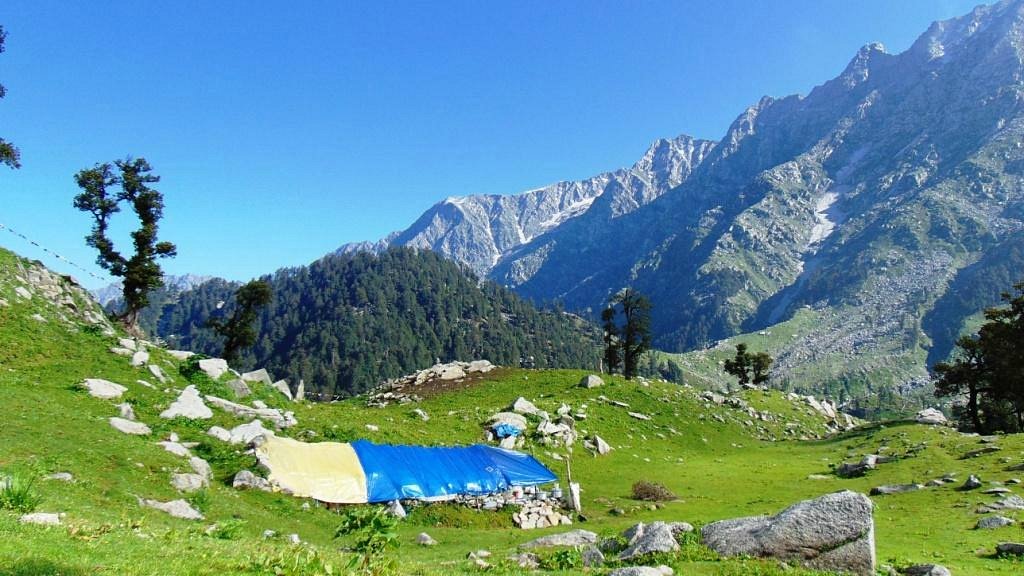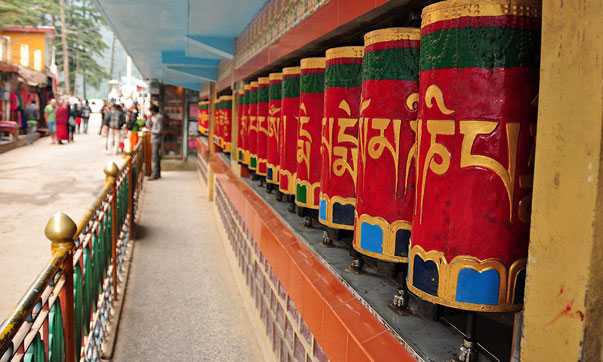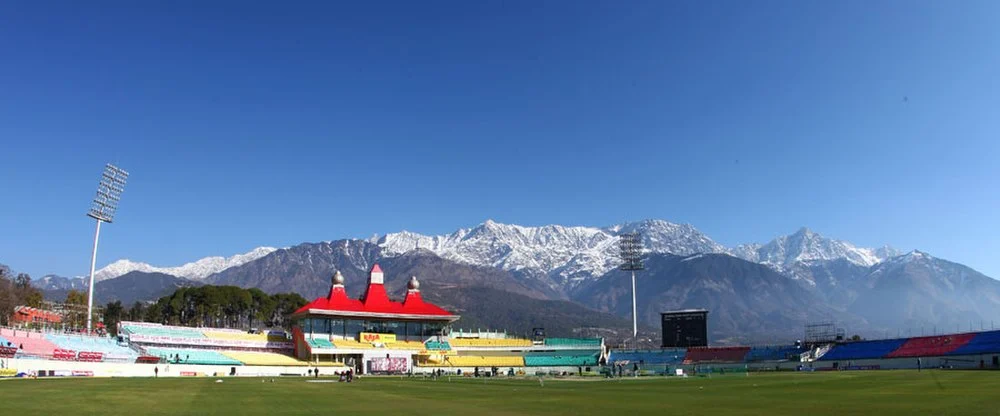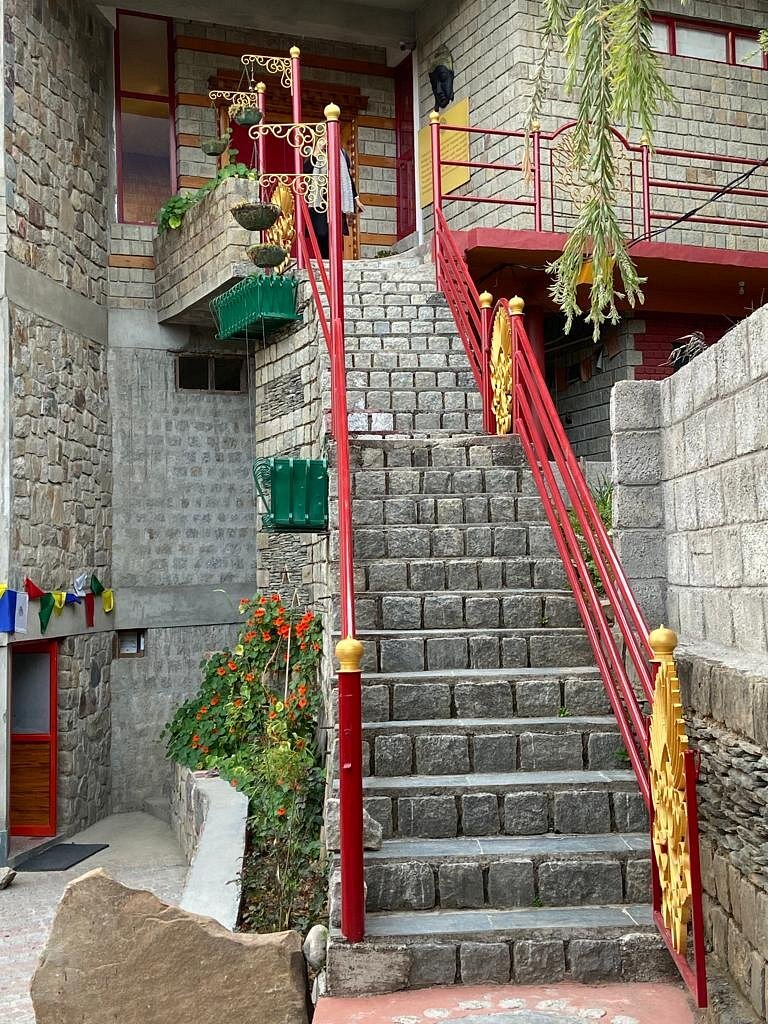Gyuto Monastery
Explore Gyuto Monastery, a revered center of Tibetan Buddhism and tantric meditation in Dharamshala. This guide delves into the monastery's history, architectural marvels, spiritual practices, visitor information, and more, providing a complete overview of this sacred site.
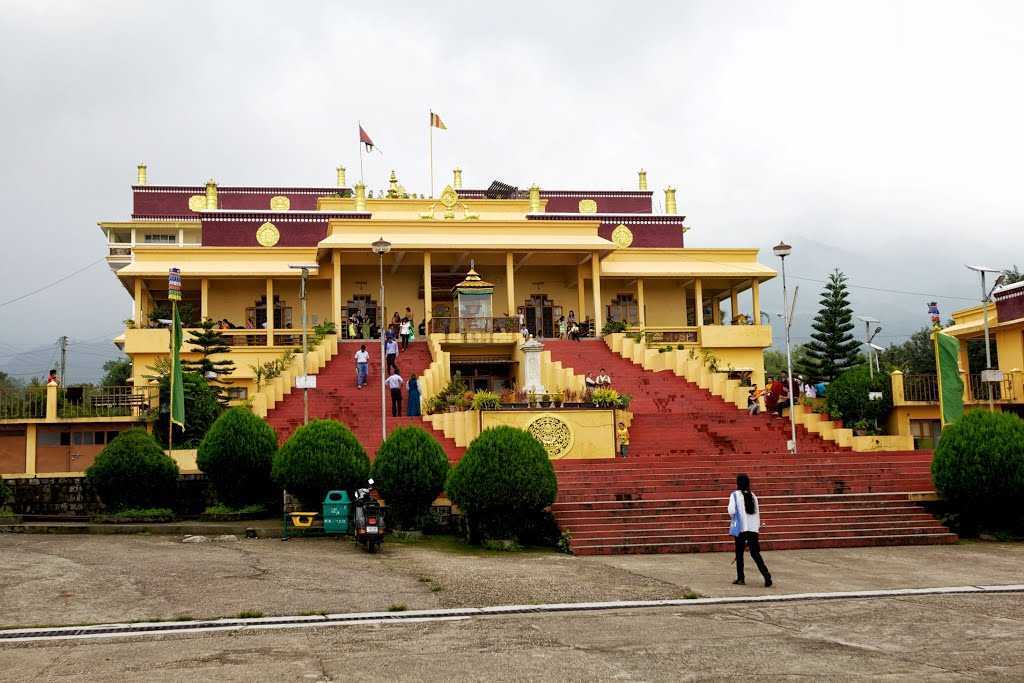
Gyuto Monastery, located in Dharamshala, Himachal Pradesh, is renowned for its tantric meditation and practices. Founded in 1474 by Jetsun Kunga Dhondup, a disciple of the great tantric master Tsongkhapa, the monastery is dedicated to preserving and promoting the teachings of the Gelug school of Tibetan Buddhism. It is a significant spiritual center that attracts monks, practitioners, and tourists from around the world.
Historical Background
Gyuto Monastery was originally established in Tibet to uphold the practice of tantric meditation. After the Chinese invasion of Tibet in 1959, the monastery was re-established in India, where it continues to play a vital role in the preservation of Tibetan Buddhism. The monastery in Dharamshala serves as a hub for the study and practice of tantric teachings, rituals, and meditation.
Location and Accessibility
Gyuto Monastery is situated in the scenic foothills of the Dhauladhar range in Dharamshala, Himachal Pradesh. The serene environment enhances the spiritual experience for visitors.
- By Air: The nearest airport is Gaggal Airport, approximately 15 kilometers (9 miles) away.
- By Train: The nearest railway station is in Pathankot, about 85 kilometers (53 miles) away.
- By Road: Regular bus services and private taxis connect Dharamshala to major cities like Delhi and Chandigarh.
Architectural Features
The architecture of Gyuto Monastery reflects traditional Tibetan styles with modern influences:
- Main Prayer Hall: Adorned with vibrant murals, intricate thangka paintings, and statues of Buddhist deities.
- Golden Buddha Statue: A prominent feature in the main hall, symbolizing peace and enlightenment.
- Meditation Halls: Designed for silent meditation and tantric practices.
- Monastic Residences: Accommodations for monks and visiting practitioners.
- Stupas and Shrines: Scattered throughout the grounds, these structures are focal points for prayer and meditation.
Spiritual Practices and Teachings
Gyuto Monastery is a center for the practice and teaching of Vajrayana Buddhism:
- Tantric Rituals: Daily rituals and ceremonies involving intricate tantric practices.
- Chanting: Monks perform deep harmonic chanting, believed to have profound spiritual effects.
- Meditation: Emphasis on tantric meditation techniques aimed at achieving enlightenment.
- Teachings: Regular teachings by senior monks on various aspects of Buddhist philosophy and practice.
- Retreats: Opportunities for intensive meditation retreats and spiritual training.
Key Attractions and Highlights
- Morning and Evening Prayers: Experience the powerful and serene chanting sessions.
- Tantric Rituals: Witness intricate rituals that are part of the daily monastic routine.
- Golden Buddha Statue: Admire the craftsmanship and spiritual significance of this stunning statue.
- Meditation Sessions: Participate in guided meditation sessions to deepen your spiritual practice.
- Thangka Paintings: Explore the detailed and symbolic artwork displayed throughout the monastery.
Visitor Information
- Timings: Open daily from 6:00 AM to 6:00 PM.
- Entry Fee: No entry fee, but donations are appreciated.
- Dress Code: Modest clothing is recommended to respect the sanctity of the monastery.
- Photography: Permitted in most areas, but check for specific restrictions.
- Guided Tours: Available for a deeper understanding of the monastery’s practices and history.
- Facilities: Includes a small café, gift shop, and restrooms.
Nearby Attractions
While visiting Gyuto Monastery, explore other attractions in Dharamshala:
- Dalai Lama Temple Complex: The spiritual and cultural heart of Tibetan Buddhism in McLeod Ganj.
- Bhagsu Waterfall: A picturesque waterfall perfect for a refreshing trek.
- Triund Hill: A popular trekking destination offering breathtaking views of the Himalayas.
- Norbulingka Institute: Dedicated to preserving Tibetan culture through arts and crafts.
- Kangra Fort: An ancient fort offering a glimpse into the region’s rich history.
Cultural Significance
Gyuto Monastery is a beacon of Tibetan Buddhism and tantric practice. It plays a crucial role in preserving the religious and cultural heritage of Tibet and serves as a spiritual haven for practitioners and visitors seeking peace and enlightenment.
Frequently Asked Questions (FAQs)
What are the opening hours of Gyuto Monastery?
- Open daily from 6:00 AM to 6:00 PM.
Is there an entry fee for the monastery?
- No, there is no entry fee, but donations are welcome.
Can I participate in meditation sessions?
- Yes, visitors can join guided meditation sessions.
Are guided tours available?
- Yes, guided tours are available for a deeper understanding of the monastery’s practices and history.
What should I wear when visiting the monastery?
- Modest clothing is recommended to respect the sanctity of the monastery.
Is photography allowed inside the monastery?
- Photography is allowed in most areas, but restrictions may apply in certain sections.
Can I attend tantric rituals at the monastery?
- Yes, visitors can witness the daily tantric rituals performed by the monks.
Are there accommodations nearby?
- Yes, there are various accommodations available in Dharamshala and McLeod Ganj.
Is the monastery accessible to differently-abled individuals?
- Efforts have been made to make the monastery accessible, but it’s advisable to check specific facilities in advance.

